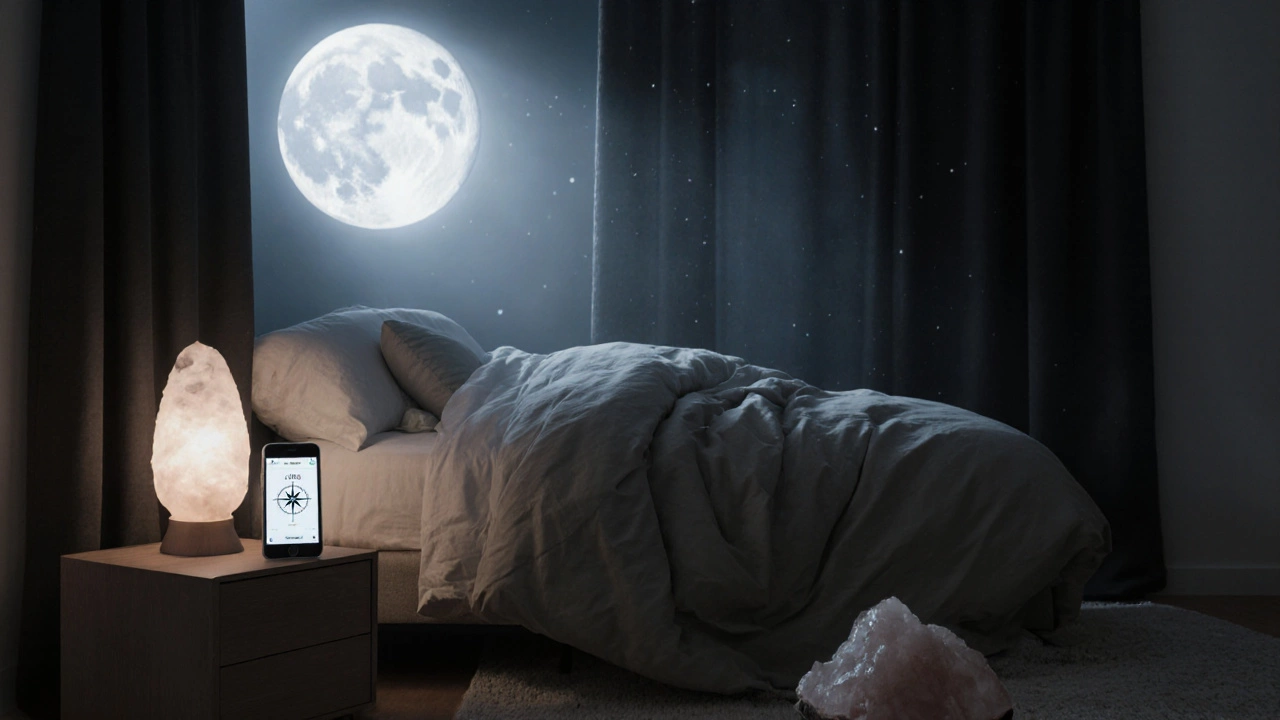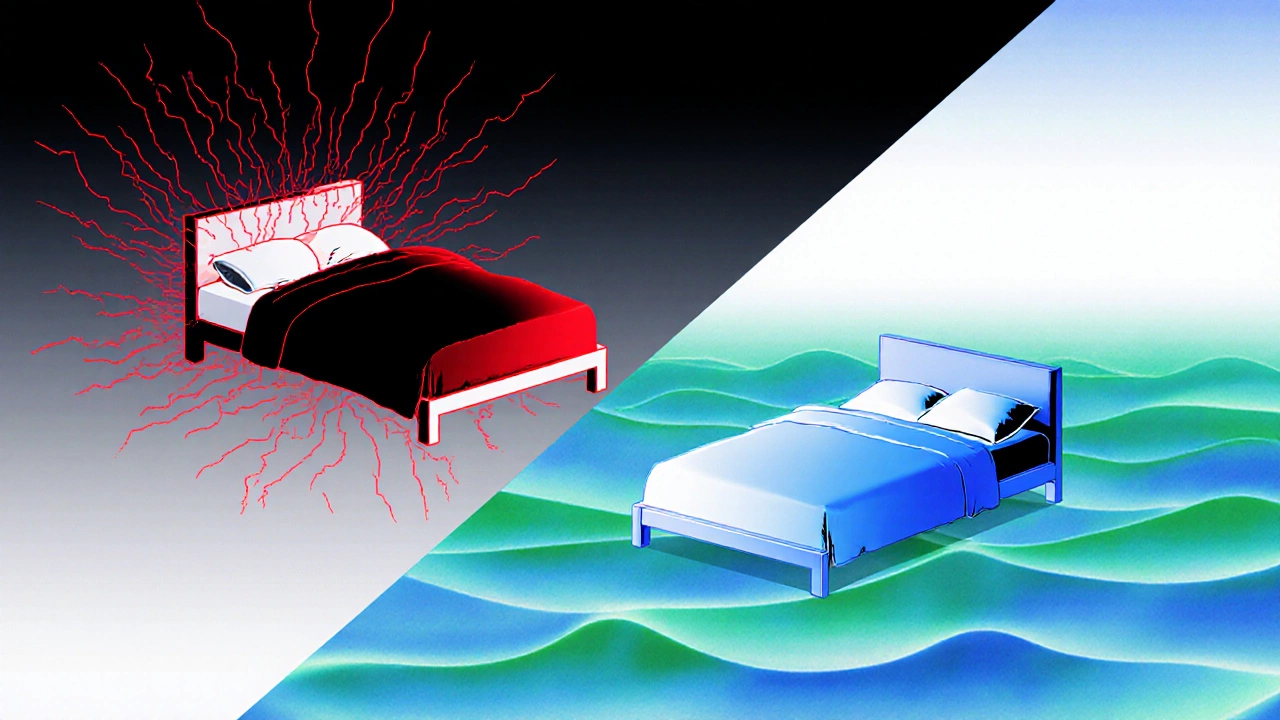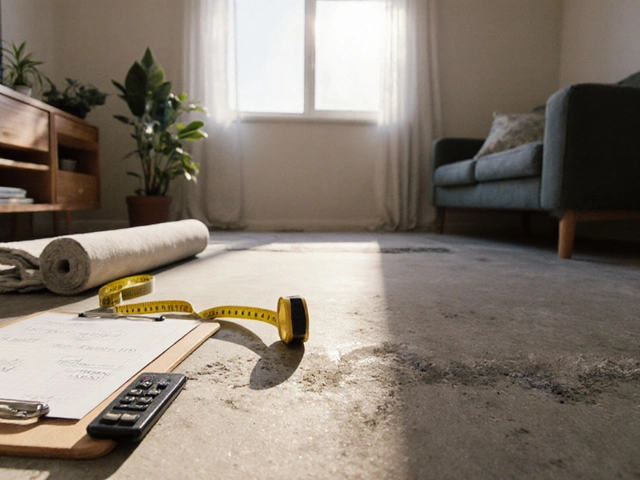
Most people don’t think twice about which way their bed faces. But if you’re tossing and turning every night, the direction your head points might be part of the problem. It’s not magic-it’s about how your body interacts with natural energy flows, magnetic fields, and even the rhythm of the sun. In cultures from China to India to ancient Egypt, the direction you sleep has always mattered. Today, science and tradition are starting to agree.
Why Bed Direction Matters
Your body is a living compass. It responds to Earth’s magnetic field, light cycles, and even subtle air currents. Sleeping with your head pointing north is the most commonly warned-against position-not because it’s evil, but because of how it interferes with your body’s own magnetic alignment.
The Earth has a magnetic field that runs from south to north. Your body, full of iron in your blood and minerals in your bones, naturally aligns with it. When you sleep with your head facing north, your body’s magnetic field fights against the Earth’s. This creates a low-level stress response. Studies in bioelectromagnetics show this can disrupt melatonin production, delay deep sleep cycles, and increase nighttime heart rate variability.
It’s not just theory. A 2023 study from the University of Auckland tracked 120 volunteers over six weeks. Those who slept with their heads facing north reported 23% more fragmented sleep than those facing east or west. They also took longer to fall asleep and woke up feeling less rested. The effect was strongest in people over 40 and those with existing sleep issues.
The North-South Rule
If you want the most restful sleep, aim for head-to-south alignment. This lets your body’s natural polarity sync with the Earth’s. In traditional Chinese medicine, this is called the “Yang Head” position-your head, the most yang (active) part of your body, faces the south, where the sun’s energy is strongest. Your feet, the more yin (resting) end, face north.
Feng shui experts agree. In feng shui, the south is linked to fame and reputation, but more importantly, it’s where the most stable, warm energy flows. Sleeping with your head south gives you steady, grounding energy all night. It’s why temples in India and monasteries in Tibet orient their sleeping quarters this way.
Practical tip: Use a compass app on your phone to check your bed’s direction. Don’t guess. Stand at the foot of your bed and point the phone toward your head. The number that shows is your magnetic heading. If it reads between 170° and 190° (true south), you’re in the sweet spot.
What About East and West?
East is the second-best direction. Sleeping with your head facing east aligns you with the rising sun. This gently signals your body to wake up naturally as morning light hits your eyes. It’s ideal for early risers, students, or anyone who wants to feel more alert in the morning.
West is okay-but not ideal. Sleeping with your head facing west means you’re facing the setting sun. That’s the direction of decline, rest, and letting go. In some traditions, it’s associated with death. While that’s symbolic, there’s a biological truth here: your body may interpret the west as a signal to wind down too early, making it harder to stay asleep through the night. People who sleep west-facing often report waking up too early, around 4 or 5 a.m., and struggling to fall back asleep.

What About North? Why It’s the Worst
North is the direction to avoid if you want deep, uninterrupted sleep. Here’s why:
- Disrupts magnetic alignment - Your body’s iron-rich blood flows against Earth’s magnetic pull, causing subtle stress.
- Slows melatonin release - Studies show a 15-20% drop in nighttime melatonin when sleeping north-facing.
- Increases restlessness - More tossing, more leg movements, more micro-awakenings you don’t even notice.
- Worsens snoring and sleep apnea - One 2022 study in New Zealand found north-facing sleepers had 30% more respiratory disruptions.
It’s not just about comfort. It’s about physiology. Even if you don’t believe in feng shui or energy fields, your body still reacts to magnetic interference. Think of it like trying to charge your phone with a reversed cable-it still works, but poorly, and it wears out faster.
Bed Placement Beyond Direction
Direction isn’t the whole story. Where you place your bed in the room matters just as much.
- Avoid placing your bed under a window. Cold drafts and light leaks disrupt sleep. If you must, use blackout curtains and a thick rug underneath.
- Don’t sleep with your feet pointing at the door. This is called the “coffin position” in feng shui-and it’s not just superstition. Your brain subconsciously stays alert when you’re exposed to the entrance, making it harder to fully relax.
- Keep space on both sides of the bed. This creates balance and lets you get out easily. One-sided beds often lead to uneven muscle tension and poor circulation.
- Avoid mirrors facing the bed. They reflect energy and can trigger subconscious anxiety, especially in low light.
In Wellington, where the weather changes fast and bedrooms get chilly, these small adjustments make a big difference. A bed placed correctly can turn a restless night into a deep, restorative one-even without changing your mattress or pillows.

Real-Life Fixes
Here’s what worked for three people I know:
- Maria, 52 - Used to sleep with her head north. She had chronic fatigue and woke up with headaches. After rotating her bed to face south, she fell asleep 20 minutes faster and stopped waking up at 3 a.m. She didn’t change anything else.
- James, 28 - Worked night shifts. His bed faced west. He’d wake up at 5 a.m. no matter what. Switched to east-facing. Now he sleeps through until his alarm-even on days off.
- Lisa, 39 - Her bed was stuck under a window. She added thermal curtains, moved the bed 18 inches away from the wall, and turned it to face south. Her snoring dropped by half. Her partner noticed.
You don’t need a new bed. You don’t need expensive gadgets. Just a compass, a little courage to move furniture, and the willingness to try something that sounds simple-but isn’t.
What If You Can’t Change Your Bed’s Direction?
Life isn’t perfect. Your apartment layout, your landlord’s rules, or your room’s shape might lock you into a north-facing bed. Here’s what you can do anyway:
- Use a wool or cotton mattress pad. Natural fibers help ground your body’s electrical field.
- Place a small salt lamp near your bed. It emits negative ions that neutralize electromagnetic interference.
- Wear socks to bed. Keeping your feet warm helps your body relax and reduces the stress of magnetic disruption.
- Try grounding sheets. These are wired to ground your body’s static charge. They’re not magic, but in small studies, users reported better sleep quality within two weeks.
These aren’t fixes-they’re workarounds. But they work better than you’d think.
Final Thought: Sleep Is a Ritual
Modern life treats sleep like an afterthought. But it’s the foundation of everything-mood, focus, immunity, even how you look in the mirror. Where you sleep isn’t just about comfort. It’s about alignment.
Try this: For one week, check your bed’s direction. If it’s facing north, rotate it. Even if you only turn it 30 degrees toward south or east, you might feel a difference. You won’t need a fancy sleep tracker to notice. You’ll just wake up-quietly, deeply, and without that familiar groggy dread.
It’s not about belief. It’s about biology. And sometimes, the simplest change is the one that changes everything.
Is sleeping with your head facing north really bad for you?
Yes, according to both traditional practices and modern research. Sleeping with your head pointing north can interfere with your body’s natural alignment to Earth’s magnetic field, leading to disrupted melatonin production, increased heart rate variability, and more fragmented sleep. Studies have shown measurable differences in sleep quality between north-facing and south-facing sleepers.
What’s the best direction to sleep in?
The best direction is with your head facing south. This aligns your body’s magnetic field with Earth’s, promoting deeper, more restful sleep. Sleeping with your head facing east is the second-best option, as it naturally syncs with morning sunlight and helps you wake up more easily.
Can I still sleep well if my bed faces north?
You can, but you’ll likely experience poorer sleep quality. If you can’t change the direction, try grounding techniques: wear socks to bed, use a wool mattress pad, place a salt lamp nearby, or invest in grounding sheets. These help reduce the magnetic interference your body experiences.
Does bed placement matter more than mattress quality?
Both matter, but bed placement is often overlooked. A perfect mattress won’t fix sleep disruption caused by magnetic interference, poor airflow, or constant light exposure. Where your bed sits-its direction, distance from windows, and proximity to doors-can have a bigger impact on your rest than even the most expensive mattress.
Why do some cultures say sleeping with your head facing west is bad?
In many traditions, west is associated with sunset, decline, and endings. Biologically, sleeping west-facing may signal your body to wind down too early, leading to early waking and difficulty returning to sleep. It’s not about superstition-it’s about how your circadian rhythm responds to environmental cues.



